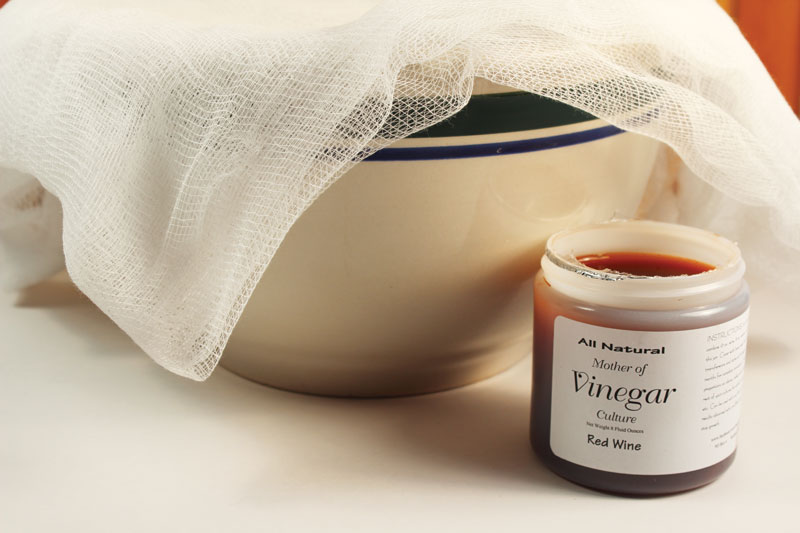Finding a Vinegar Storage Space
Q: I am going to start making some red wine vinegar. I know, how dare I actually introduce vinegar into my wines . . .
So, I have everything set up for my vinegar storage (a 5-L/5.3 qt. oak barrel) and the wine’s ready to go into the container. My question is where can I keep this set up? Obviously, it will not be in the basement with my wine room.
Is the 1st floor a safe option? In other words, is that far enough away to keep the wine room safe from contamination? The only other place I have is on the second floor in the bedroom/exercise areas and I’m not too excited about breathing vinegar through the night. I have a garage, shed, and porch but they are likely too cold to be an effective storage/making area.
Short of going to someone else’s home who is not making wine, what would you recommend?
— Susan Hammond • East Greenwich, Rhode Island
A: You got a chuckle out of me. Indeed, how dare you introduce vinegar to your wines! I’m actually very happy that you’re writing so you can learn how not to introduce vinegar to your wines and in fact it seems like you’ve put a lot of thought into it. As many of my readers will know, wine turns into vinegar through the action of a group of bacteria known as Acetobacter, which eat alcohol and turn it into acetic acid, the sour yet pleasantly palatable acid that gives vinegar its “zing.”
Acetobacter are literally everywhere. They hang out on everyday surfaces, they live on our kitchen counters, they even hang out in the air we breathe. They’re so ubiquitous that it’s unlikely that you’ve got a room anywhere in your house that’s free of them. In fact, I’d wager your own basement wine room is the place with the highest cell count, because Acetobacter will naturally colonize in higher numbers where the “food”, i.e., your wine, is. With that being the case, you ask, why even try to keep the vinegar stored somewhere else? The simple and intuitive answer of which you’re already aware is that your vinegar fermentation area, where you’ll be actively encouraging a flourishing Acetobacter colony, will soon become a population center to outrival even the darkest, dampest corner of your basement.

So yes, it does make sense to make your vinegar far, far away from where you make your wine. Ideally, this would be in a separate building, which could be kept at the temperature needed for good vinegar production, 60–80 °F (16–27 °C). Because the inside of your house will have its interior air in communication with your basement (even if you mostly keep the doors closed) it’s going to be that much harder to keep the “bad” bacteria away from your wine. It’s not just the air that can spread Acetobacter.
Every time you (or the dog or cat) pass through the “vinegar room” you’d be colonizing yourself, your hair, and especially the soles of your shoes with Acetobacter, which would get transferred all over the house and eventually to the basement. You say your outbuildings are too cold, but, depending on the time of year, especially if you had an electric blanket or heating pad to help, is it possible to keep your vinegar containers in the temperature “sweet spot” for the three to four weeks typically needed for a vinegar fermentation? I’d hate to have you lose the hard-won produce of your old hobby in an attempt to try out a new one.
If I had to rank your locations, I’d say first choice would be your stand-alone shed or porch, with the temperature regulated with the addition of an electric blanket or heating pad. You may also want to think about making vinegar when the conditions are the most conducive to it, possibly during the late spring, summer, or early fall. My next choice for location would be your garage, especially if it’s a garage you don’t enter often and especially if it’s not the way you usually enter your house. If you must choose a room inside your house then choose the spot that’s the farthest away from your wine room in the basement, taking into account how much you pass through, enter, or spend time in that space. The more time you spend in “the vinegar area” the more time the Acetobacter will have to glom onto you and get colonized into other parts of your house.
I hope all of this helps you decide where to locate your vinegar project and doesn’t creep you out with visions of aliens taking over your body or zombies invading your cupboards. Just use common sense and be aware, and you should be fine.


